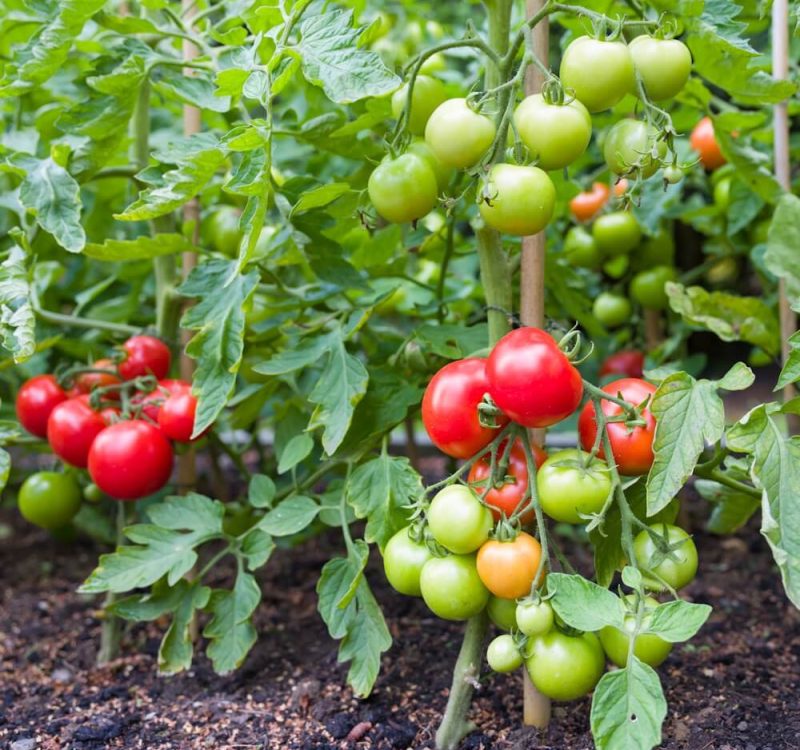Fertiliser for Potted Roses
Transform Your Garden into a Personal Paradise!
Best Fertiliser for Potted Roses
Potted roses bring fragrance and colour to courtyards, patios, and balconies — but unlike garden-grown plants, they depend entirely on the nutrients you provide. Limited soil volume and frequent watering quickly deplete minerals, making regular fertilising essential for healthy growth and repeat flowering.Container-grown roses thrive when fed lightly and often. A balanced fertiliser restores what daily watering washes away, keeping leaves glossy and flowers bright. The ideal routine combines CompleteGrow All Purpose NPK 20-20-20 for steady growth and Advanced NPK 4-18-38 + Calcium & Magnesium for bloom performance and colour intensity.
The Nutrient Demands of Potted Roses
Roses grown in pots face restricted root space and faster nutrient loss. They need a fertiliser that replenishes nitrogen for growth, phosphorus for roots, and potassium for flowers — all in controlled amounts to prevent salt build-up in the soil.
Nitrogen (N)
Encourages compact, healthy foliage and new shoots. The balanced nitrogen in 20-20-20 supports steady structure without overstimulating growth in confined containers.
Phosphorus (P)
Promotes root health and bud formation. High-phosphorus feeding from the 4-18-38 formula ensures repeat flowering and quick recovery after pruning or transplanting.
Potassium (K)
Intensifies colour and strengthens petals. Potassium also helps potted roses cope with temperature swings and water stress — a common issue in containers exposed to direct sun.
With balanced NPK feeding and proper watering, potted roses maintain strong roots and continual bloom cycles even in compact spaces.


How to Fertilise Potted Roses for Continuous Blooms
Feeding roses in pots is all about timing and moderation. Because nutrients leach faster in containers, lighter, more frequent feeds are far more effective than strong, infrequent doses. Always apply fertiliser to damp soil and water thoroughly afterward.
Spring: Start feeding as soon as new shoots appear. Use half-strength 20-20-20 every two weeks to build strong stems and prepare for the first flush of buds.
Summer: Alternate between 20-20-20 and 4-18-38 + CaMg every two to three weeks to sustain flowering and maintain foliage colour.
Autumn: Continue with diluted 4-18-38 monthly to strengthen roots before winter dormancy.
Winter: Pause feeding after pruning and water sparingly until new growth resumes.
To prevent mineral build-up, flush each pot with clean water every four to six weeks. This removes excess salts and keeps roots active. For best results, use well-draining potting mix and elevate containers slightly off hot surfaces to protect roots from overheating.
With gentle feeding and proper watering, potted roses stay compact, repeat-flowering, and beautifully green right through the season.


Common Potted Rose Feeding Questions
Why do potted roses stop flowering?
Usually from depleted nutrients or irregular watering. Feed consistently with 4-18-38 during the blooming phase to restore energy and bud formation.
Can I use the same fertiliser as garden roses?
Yes, but at lower concentration. Container soil holds less organic matter, so half-strength feeds work best to prevent salt build-up.
Why are my rose leaves turning yellow in pots?
Magnesium or water stress is often the cause. The magnesium in 4-18-38 + CaMg quickly restores foliage colour and improves resilience.
How often should I fertilise potted roses?
Every two to three weeks through spring and summer. Regular, diluted feeding keeps roots active and promotes steady growth without stress.
Final Recommendation
Keep container roses healthy with a light, frequent feeding routine. Use
CompleteGrow All Purpose NPK 20-20-20
to build strong growth, and
Advanced NPK 4-18-38 + Calcium & Magnesium
for vibrant flowers and deep green leaves. Consistent care ensures every potted rose remains lush, compact, and continuously in bloom.
Related Rose Guides
- How to Plant and Grow Roses
- Best Time to Plant Roses in Australia
- When to Plant Roses
- What to Plant with Roses
- How to Get More Flowers on a Rose Plant
- Why Are My Roses Drooping?
- Rose Buds Not Opening
- Why Are My Rose Leaves Turning Yellow?
- Why Are My Rose Leaves Turning Brown?
- How to Revive Roses
- Best Fertiliser for Roses
- Fertiliser for Rose Bushes
- Fertiliser for Potted Roses
- Best Fertiliser for Climbing Roses
Recommended Products
- Quick View
- Select options This product has multiple variants. The options may be chosen on the product page
Advanced Formula – Boost Flowering & Fruiting – NPK 4-18-38 + Calcium & Magnesium
- Quick View
- Select options This product has multiple variants. The options may be chosen on the product page










